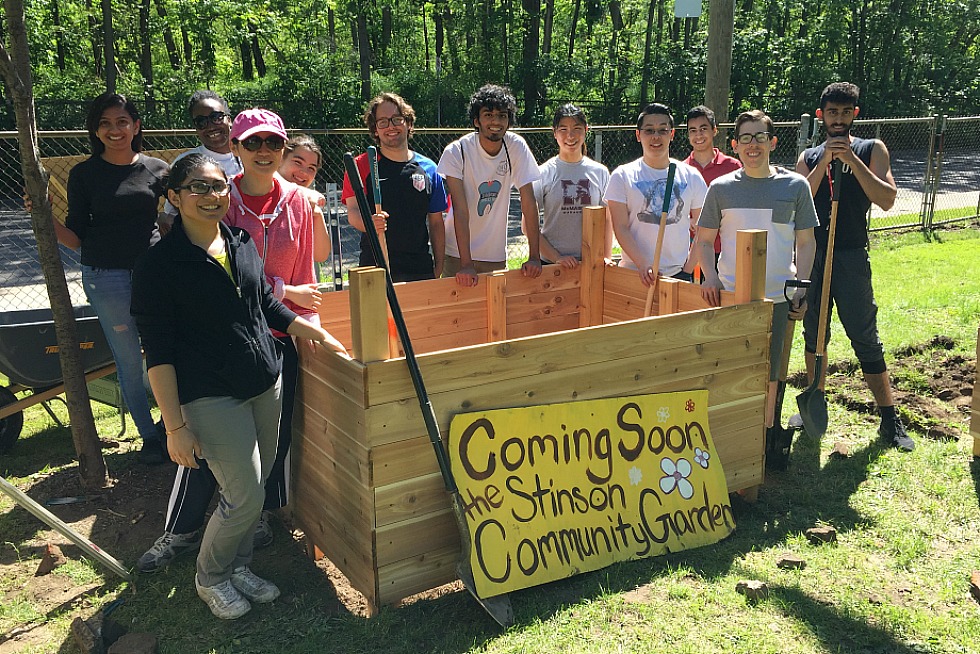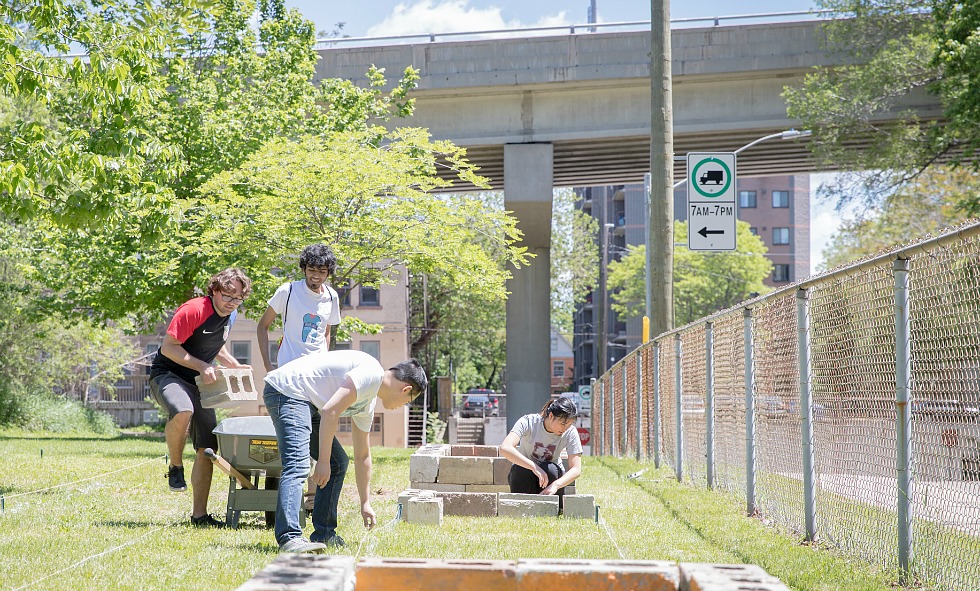McMaster works with Stinson neighbourhood to help the community garden grow

McMaster students are working with residents of the Stinson neighbourhood on a community garden project that is meant to address food-insecurity issues in that neighbourhood and on campus.
McMaster is working with residents of the Stinson neighbourhood to build a community garden that is meant to address food-insecurity issues in the neighbourhood, as identified in the Code Red report and in collaboration with the community.
McMaster students recently joined with members of the Stinson Neighbourhood Association to build the frames that will provide the structure for the garden, located in Carter Park.

The garden is part of a project that was funded through a Change Camp grant from McMaster’s Office of Community Engagement. A portion of the grant will also be used to enhance the McMaster Teaching and Community Garden on campus, intended to build knowledge and awareness and to provide fresh food to students.
Adam Chiaravalle, a McMaster political science student who is co-leading the project, says the initiative is McMaster’s first active engagement in a community garden in the city of Hamilton and is a step toward addressing what he describes as high levels of food insecurity and a lack of availability of healthy and nutritious foods both on campus, and in the Stinson community.
Chiaravalle developed the initiative in partnership with Karl Andrus, the co-chair of the Stinson Neighbourhood Association, and with the help of Chad Harvey, associate professor in McMaster’s School of Interdisciplinary Science and Kate Whalen, senior manager of McMaster’s Academic Sustainability Programs Office.
Chiaravalle says this initiative is one way to help break the cycle of food insecurity and improve quality of life in the Stinson neighbourhood – identified as one of 11 Hamilton neighbourhoods in the 2010 Code Red report. Pointing to a recent study from the McMaster Students Union which found that 55% of students have experienced food insecurity, Chiaravalle says the project is also intended to improve access to healthy, nutritious food on campus through enhancements to the McMaster Teaching and Community Garden.
“This partnership for me is so remarkable because it recognizes that the food systems both at McMaster and in Stinson need a lot of work, but both parties are coming together to help overcome it,” says Chiaravalle.
“It’s such a privilege for me to be part of this project,” he adds. “It’s a great way for McMaster to not only give back and help address the Code Red study, but to be involved in this really unique process that has led McMaster and the Stinson neighbourhood coming together to launch this community garden, which will enable both parties to be part of a shared learning experience that creates a healthy and sustainable food system.”
For more information, or to get involved in the community garden, contact Adam Chiaravalle.

